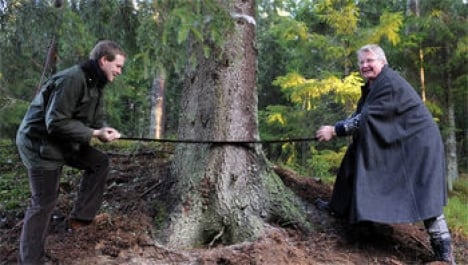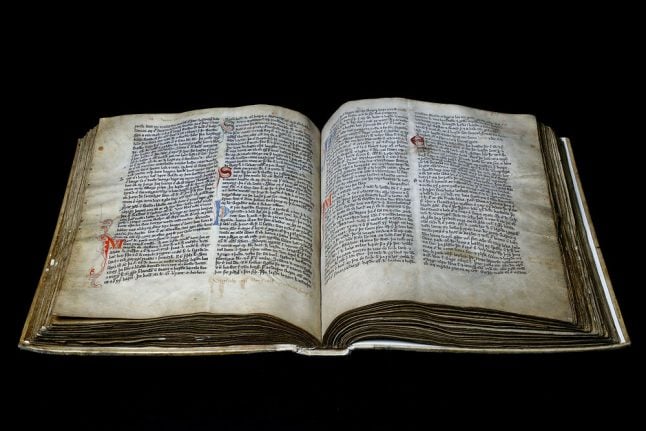CHRISTMAS TREE
Oslo to send Christmas tree to Iceland after all
Oslo's City Council has reversed its decision to scrap its annual Christmas Tree to Reykjavik, after an unexpectedly furious reaction from Icelanders.
Published: 24 June 2014 17:08 CEST

The ceremonial cutting of a Christmas tree intended for London in 2009. Photo: Oslo City Council
The council at Easter proposed ending the costly and logistically challenging process of shipping a tree all the way across the North Atlantic, announcing that it would instead pay for a tree to be cut down and decorated on Iceland.
But Icelanders interpreted the proposal as a national snub, with many believing that the Christmas tree was being used as a proxy to punish Iceland over a fishing dispute.
To fend off the crisis Oslo mayor Fabian Stang published a letter in Iceland's leading newspaper explaining the decision. But it did little to clear the air and last week, the city's finance committee voted instead to continue the 50-year-tradition.
"It is no secret that the termination of this scheme was received with great disappointment, and we see the uproar as an indication that this was more popular than we realized," Stang said after the council's decided to keep sending the tree last week.
Dagur Eggertsson, Reykjavik new mayor, said he was "pleasantly surprised" by the move.
Url copied to clipboard!


 Please whitelist us to continue reading.
Please whitelist us to continue reading.
Member comments